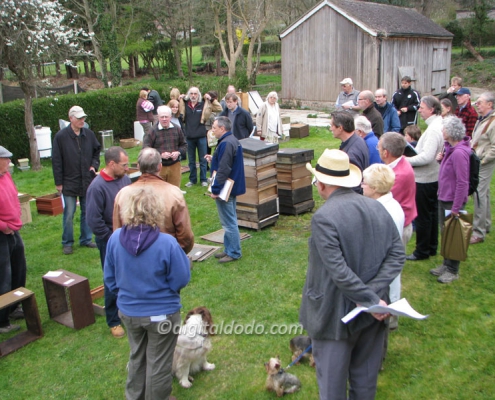Starting out as a beekeeper can be a rewarding experience. It offers a unique opportunity to observe and interact with one of nature’s most fascinating insects while contributing to the health of the environment. Honeybees are crucial pollinators, playing a vital role in agriculture and the production of many of the foods we enjoy daily. By getting started in beekeeping, you are not only nurturing these essential creatures but also harvesting natural honey, beeswax, and other bee products.
Understanding the Basics of Beekeeping
Before diving into beekeeping, it’s essential to understand the basics. Beekeeping involves managing bee colonies housed in hives. These colonies consist of a queen, worker bees, and drones, each playing a distinct role in the hive’s health and productivity. The primary objective of beekeeping is to maintain healthy colonies that can sustain themselves and produce honey.
Selecting the Right Location for Your Beehives
Choosing an appropriate location for your beehives is crucial. Bees need a sunny spot that is sheltered from strong winds and away from heavy foot traffic. Ideally, the location should be near flowering plants and water sources. You will need around 2m in front and behind the hives to accommodate the bee’s flight path and have space to perform your weekly inspections. Most hobby beekeepers can normally site a couple of hives in their gardens but if this is not suitable for you then you can also look a putting some hives into an allotment holding. This may require approval from your local council and the other allotment holders but it’s normally easy to do and most sites will be very welcoming to beekeepers. There is also usually an opportunity to put hives onto farmland – most farmers are accommodating Just make sure that there’s easy access for you to get to the hives to be able to move in equipment and hopefully take off full honey supers. A final option might be to put hives into someone else’s garden, again just check out the access. If you join a local club they usually will have a list of people want to have bees in their garden.
Essential Beekeeping Equipment for Beginners
Investing in the right equipment is critical to your success in beekeeping see
For beginners, this includes a bee suit for protection, a smoker to calm the bees, a hive tool for managing the hives, and of course, the beehives themselves. Let’s delve into each of these essentials:
Obtaining Your First Bee Colony
Once your equipment is ready, the next step is acquiring bees. There are several ways to obtain your first colony:
Nucleus Colonies (Nucs): A nuc is a small, established colony with a queen, workers, brood, and honey. It’s an excellent way to start as it gives you a head start with an already functioning hive. Normally on 5 frames and supplied in a travelling box. I would try and get hold of a nuc before the end of June so that they can build up to a full size colony before the end of the system
Capturing Swarms: This method involves capturing a natural swarm. It’s cost-effective but requires some experience and a bit of luck. Again a local association normally manages a swarm collection service and will let members “buy” a swarm for a nominal amount. You will normally need to supply the collection box.
Buying Bees at Auction: this can be a useful way to acquire a colony early in the season. It may be an over-wintered nuc or a full size colony – check if it’s been tested/treated for disease (nosema and varroa). Also find out before buying what the arrangements are for transferring the bees into your equipment as bees sold at auction don’t normally come in a hive or travelling box.
Buying bees at auction
FAQs
How much time does beekeeping require?
Beekeeping requires regular attention, especially during the active seasons of spring and summer. Expect to spend a few hours per week on hive inspections, maintenance, and honey harvesting.
What are the costs involved in starting beekeeping?
Initial costs include purchasing equipment, bees, and protective gear. Expect to spend between £500 to £1,000 to get started, depending on how you acquire your first bees and if you buy a new hive. In the UK most of the equipment suppliers offer start packages which include everything apart from bees. Not included are costs for extraction equipement – if you join a local association they will have extractors etc. for members to rent.
Do I need training to start beekeeping?
While not mandatory, taking a beekeeping course or joining a local beekeeping association can provide valuable knowledge and support for beginners.
How much honey can I expect to harvest?
Honey yield varies based on factors like hive health, forage availability, and climate. On average, a healthy hive can produce 20Kg – 40Kg of honey per year.
Conclusion
Starting beekeeping can be incredibly rewarding. By understanding the basics, investing in the right equipment, and maintaining healthy colonies, you can enjoy the many benefits of beekeeping while contributing positively to the environment. Whether you’re motivated by a love for nature, a desire to produce your own honey, or an interest in sustainable living, beekeeping offers a fulfilling and educational experience.

